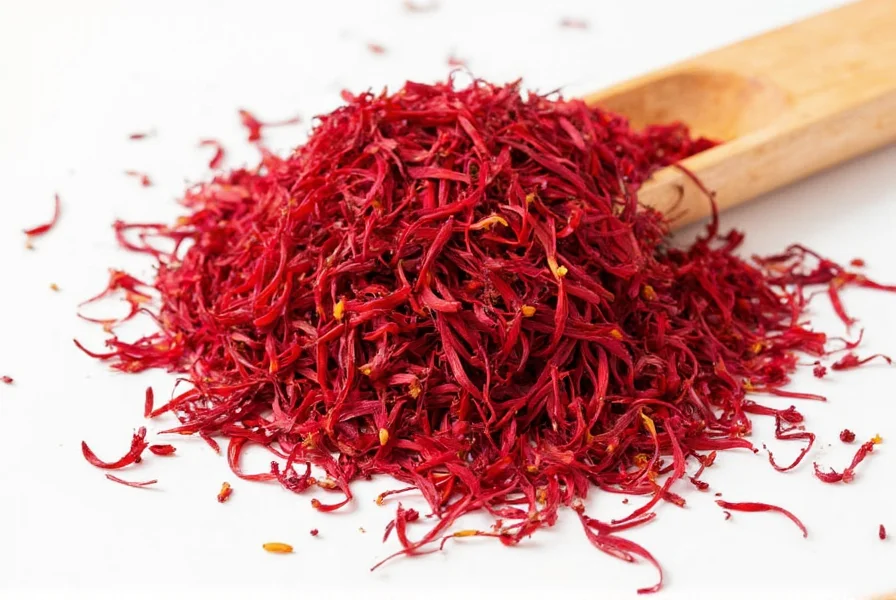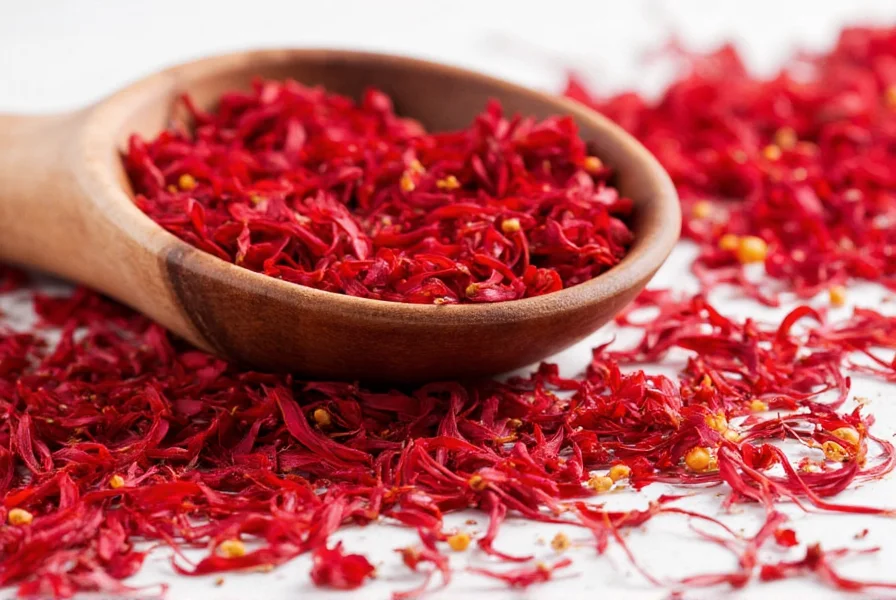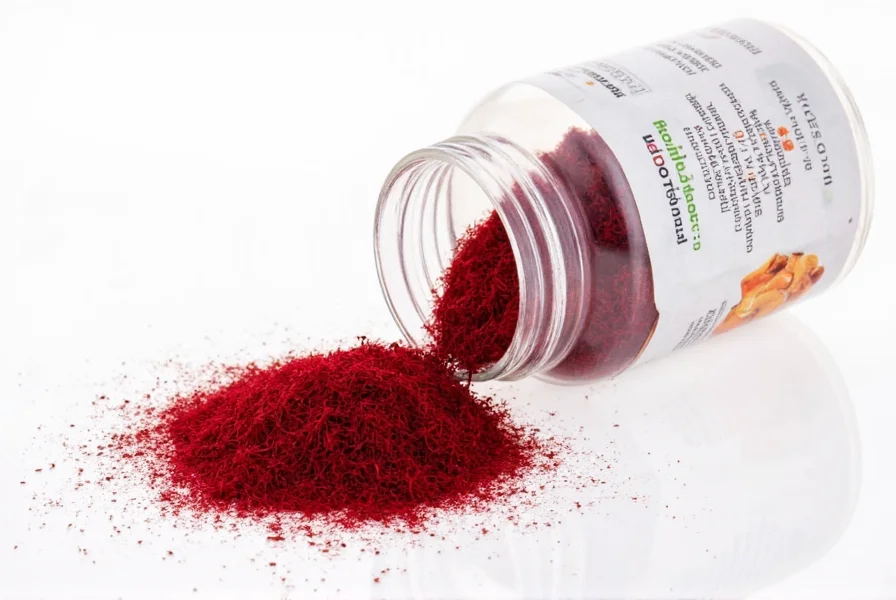When evaluating saffron-based cognitive supplements like Brain MD Saffron, understanding the scientific basis behind their formulation is essential. Saffron, one of the world's most expensive spices by weight, contains bioactive compounds that have demonstrated neuroprotective properties in multiple clinical studies. The therapeutic potential lies primarily in crocin (a carotenoid pigment) and safranal (the compound responsible for saffron's distinctive aroma), which work through complementary mechanisms to support brain health.
The Science Behind Saffron for Cognitive Support
Saffron's cognitive benefits stem from its unique biochemical profile. Unlike many herbal supplements that offer single-pathway effects, saffron extract influences multiple neurological systems simultaneously. Research published in Human Psychopharmacology demonstrates that saffron's active constituents increase synaptic availability of serotonin, dopamine, and norepinephrine—neurotransmitters critical for focus, memory consolidation, and emotional regulation.
What makes saffron particularly valuable for brain health is its dual-action antioxidant profile. Crocin crosses the blood-brain barrier to neutralize free radicals directly within neural tissue, while safranal upregulates the body's natural antioxidant enzymes. This combination provides more comprehensive protection against oxidative stress than single-compound antioxidants. A 2022 meta-analysis in Nutritional Neuroscience concluded that saffron supplementation significantly improved cognitive test scores in adults aged 50-75 compared to placebo, with effects becoming statistically significant after six weeks of consistent use.

Evaluating Brain MD Saffron's Formulation
Not all saffron supplements deliver equivalent cognitive benefits. The efficacy of brain health supplement with saffron depends on three critical factors: extract standardization, bioavailability enhancement, and appropriate dosing. Brain MD Saffron typically contains a 30:1 concentrated extract standardized to 3.5% crocin content—the threshold shown in clinical trials to produce measurable cognitive effects.
| Component | Concentration | Research-Supported Benefit |
|---|---|---|
| Crocin | ≥3.5% | Memory enhancement, neuroprotection |
| Safranal | ≥0.3% | Mood regulation, stress response |
| Polyphenols | Naturally occurring | Antioxidant support, vascular health |
The formulation's effectiveness for cognitive enhancement depends on maintaining these specific concentrations. Lower-potency extracts may provide general antioxidant benefits but lack the targeted neurological effects demonstrated in clinical research on saffron extract for cognitive enhancement. When selecting any saffron-based brain supplement, third-party verification of these active compound percentages is essential for ensuring therapeutic efficacy.
Clinical Evidence and Realistic Expectations
Current research on saffron's cognitive effects comes primarily from two avenues: studies on major depressive disorder (where cognitive symptoms are prominent) and direct cognitive function trials. A landmark 8-week randomized controlled trial published in Journal of Affective Disorders found that 30mg daily of standardized saffron extract produced comparable improvements in cognitive symptoms of depression as conventional antidepressants, but with fewer side effects.
For healthy adults seeking cognitive optimization, the evidence is more nuanced. Studies examining saffron supplement dosage for brain function typically show modest but statistically significant improvements in working memory and processing speed, particularly in populations experiencing age-related cognitive changes. These effects appear cumulative—most research protocols require 4-8 weeks of consistent use before measurable benefits emerge. This timeline aligns with saffron's mechanism of action, which involves gradual modulation of neurotransmitter systems rather than immediate stimulation.
Safety Profile and Practical Usage Guidelines
Saffron demonstrates an excellent safety profile at cognitive-support dosages (20-30mg daily of standardized extract). The most comprehensive safety review, published in Phytotherapy Research, analyzed data from over 2,000 participants across 23 clinical trials and found adverse events were generally mild and comparable to placebo. The most commonly reported effects were temporary mild digestive discomfort or occasional vivid dreams during initial adaptation.
However, certain populations should exercise caution. Individuals taking selective serotonin reuptake inhibitors (SSRIs) or other serotonergic medications should consult healthcare providers before using saffron supplements due to theoretical risk of serotonin modulation. Pregnant women should avoid high-dose saffron supplementation as traditional medicine sources suggest potential uterine stimulation at very high doses (far exceeding typical supplement amounts). For most healthy adults, saffron represents one of the better-tolerated natural cognitive support options with saffron extract.

Integrating Saffron into a Comprehensive Brain Health Strategy
While saffron shows promise for cognitive support, it works best as part of a multifaceted approach to brain health. Research indicates saffron's effects complement rather than replace foundational brain health practices. The most significant cognitive improvements occur when saffron supplementation combines with:
- Regular aerobic exercise (150 minutes weekly)
- A Mediterranean-style diet rich in omega-3s and polyphenols
- Consistent quality sleep (7-9 hours nightly)
- Mindfulness practices for stress management
When evaluating how saffron supports neurotransmitter balance, it's important to recognize its role as a modulator rather than a stimulant. Unlike caffeine or prescription cognitive enhancers that create immediate but potentially unsustainable effects, saffron works through gradual optimization of existing neurological pathways. This makes it particularly suitable for long-term cognitive maintenance rather than acute performance enhancement.
Conclusion: Evidence-Based Perspective on Saffron for Brain Health
Brain MD Saffron represents a scientifically grounded approach to cognitive support through standardized saffron extract. Current evidence supports its potential benefits for memory, focus, and emotional wellbeing, particularly with consistent use over several weeks. While not a miracle solution, it offers a well-tolerated option within a comprehensive brain health strategy. Consumers should prioritize products with verified crocin content (≥3.5%) and realistic expectations about the gradual nature of cognitive improvements. As research continues to evolve, saffron's role in evidence-based cognitive support appears increasingly promising, particularly for age-related cognitive changes and mood-associated cognitive symptoms.
Frequently Asked Questions
How long does it take to notice cognitive benefits from Brain MD Saffron?
Most clinical studies show measurable cognitive improvements emerging after 4-8 weeks of consistent daily use. The active compounds crocin and safranal work through gradual modulation of neurotransmitter systems rather than immediate stimulation, so benefits typically develop progressively rather than suddenly. Some users report subtle improvements in mood and mental clarity within the first two weeks, but significant cognitive enhancements generally require at least one month of regular supplementation.
What's the optimal saffron dosage for cognitive support?
Research indicates that 20-30mg daily of standardized saffron extract (containing at least 3.5% crocin) provides optimal cognitive benefits. Lower doses may offer general antioxidant effects but lack the concentration needed for significant neurological impact. Higher doses don't necessarily provide additional cognitive benefits and may increase the likelihood of mild side effects like digestive discomfort. The timing of dosage (morning versus evening) doesn't significantly affect cognitive outcomes, though some users prefer morning dosing for potential focus benefits throughout the day.
Can Brain MD Saffron interact with common medications?
Saffron may interact with certain medications due to its effects on serotonin pathways. Individuals taking selective serotonin reuptake inhibitors (SSRIs), serotonin-norepinephrine reuptake inhibitors (SNRIs), or other serotonergic medications should consult their healthcare provider before using saffron supplements. While documented cases of adverse interactions are rare at standard cognitive-support doses (20-30mg), the theoretical risk of serotonin modulation warrants professional guidance. Saffron generally doesn't interact with blood pressure medications, diabetes treatments, or most common over-the-counter medications.
How does saffron compare to other cognitive supplements like bacopa or lion's mane?
Saffron works through different mechanisms than other popular cognitive supplements. While bacopa primarily enhances memory consolidation through acetylcholine modulation and lion's mane stimulates nerve growth factor (NGF), saffron's strength lies in its dual action on mood regulation and cognitive function via serotonin and dopamine pathways. Research suggests saffron may be particularly effective for cognitive symptoms associated with mood changes, whereas bacopa shows stronger evidence for pure memory enhancement. Many users find complementary benefits when combining saffron with other cognitive supplements, as their mechanisms don't overlap significantly.
What quality markers should I look for in a saffron cognitive supplement?
For effective saffron cognitive support, verify these quality markers: standardized extract with minimum 3.5% crocin content (the threshold used in clinical trials), third-party testing documentation, and clear labeling of total daily dosage. Avoid products listing "saffron flower" or unspecified saffron parts, as the active compounds are concentrated in the stigmas. Reputable manufacturers will provide certificates of analysis showing crocin and safranal percentages. The supplement should deliver 20-30mg of standardized extract per daily dose, as lower concentrations haven't demonstrated significant cognitive effects in research on saffron extract for cognitive enhancement.











 浙公网安备
33010002000092号
浙公网安备
33010002000092号 浙B2-20120091-4
浙B2-20120091-4